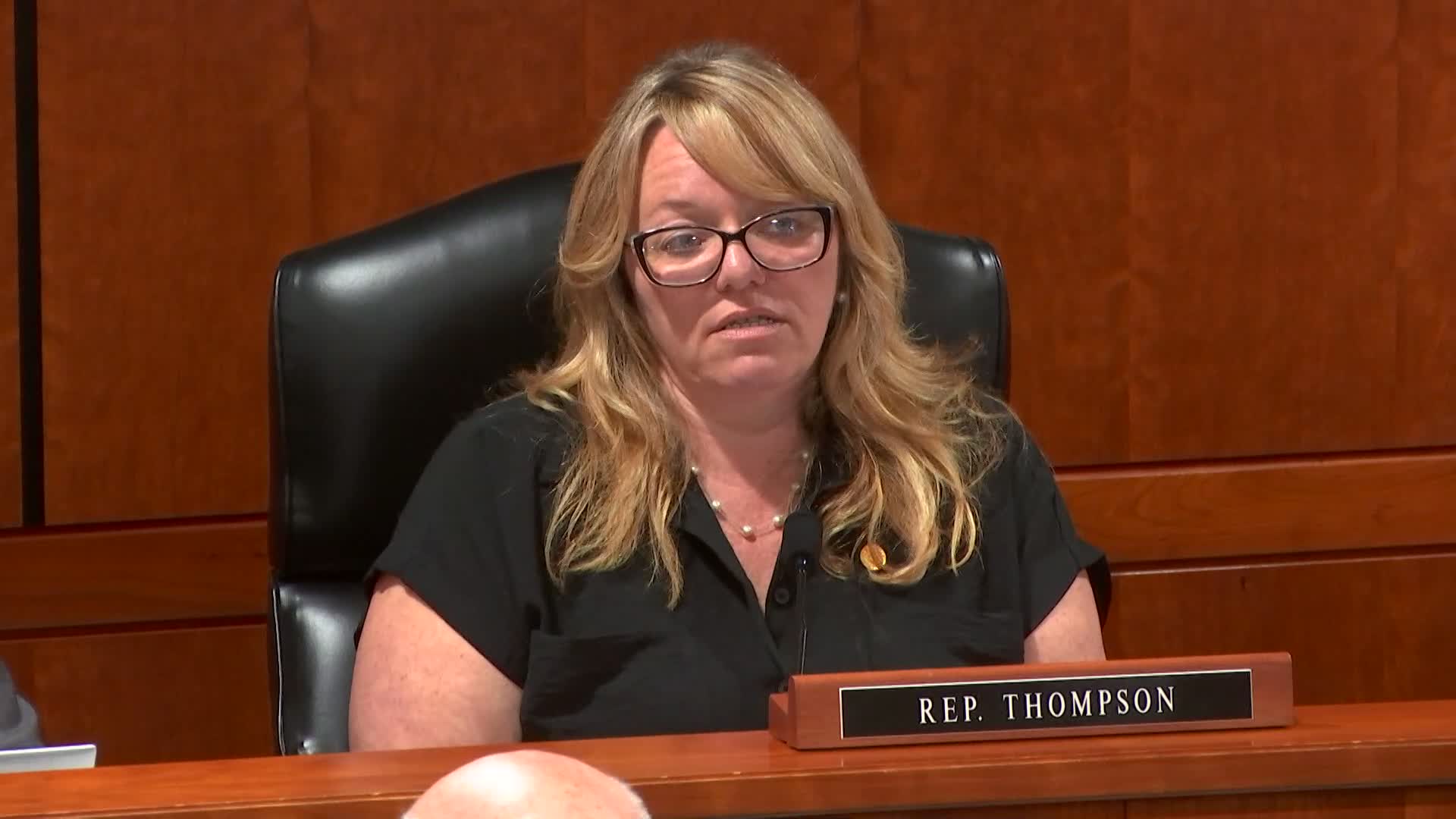Patient Advocates Support Michigan House Bills for Epilepsy Driver License Reforms
May 07, 2025 | Health Policy, House of Representative, Committees , Legislative, Michigan
This article was created by AI summarizing key points discussed. AI makes mistakes, so for full details and context, please refer to the video of the full meeting. Please report any errors so we can fix them. Report an error »

On May 7, 2025, the Michigan House of Representatives convened to discuss critical health policy issues, particularly focusing on proposed legislation concerning epilepsy and driving regulations. The meeting highlighted personal testimonies and expert opinions that underscored the complexities surrounding epilepsy management and the implications for patient safety and mobility.
A significant portion of the discussion centered on House Bills 4306 and 4307, which aim to reform current laws governing the suspension of driving privileges for individuals with epilepsy. Scott Christoffel, a patient advocate and lifelong epilepsy sufferer, shared his personal journey with the condition, emphasizing the challenges faced by patients when their ability to drive is jeopardized. He argued that the existing one-size-fits-all approach to license suspensions does not adequately consider the individual circumstances of patients with controlled seizures. Christoffel advocated for a more nuanced system that would allow for shorter suspension periods—potentially reducing the standard six-month suspension to three months for patients under medical supervision. This change, he argued, would encourage individuals to seek necessary treatment without the fear of losing their driving privileges.
In contrast, David Hanzer from the Michigan Department of State expressed opposition to the proposed bills. He raised concerns that the legislation could undermine public safety by allowing individuals who have experienced seizures to retain their driving privileges without adequate assessment. Hanzer emphasized the importance of maintaining strict guidelines to ensure that drivers with epilepsy do not pose a risk to themselves or others on the road. He noted that the current process includes a driver assessment that evaluates an individual's fitness to drive, which is crucial for public safety.
The committee members engaged in a robust dialogue, questioning the balance between patient rights and public safety. Some representatives expressed concerns that the current system may be overly punitive, particularly for those with well-managed conditions. Others highlighted the need for a collaborative approach that respects medical expertise while ensuring that safety standards are upheld.
The meeting concluded without a definitive resolution, but it set the stage for ongoing discussions about how best to support individuals with epilepsy while safeguarding public safety. As the committee considers the implications of these bills, the voices of patients and medical professionals will be critical in shaping a policy that addresses both health and safety concerns. The outcome of this legislative effort could significantly impact the lives of many Michiganders living with epilepsy, as well as the broader community's approach to managing medical conditions that affect driving capabilities.
A significant portion of the discussion centered on House Bills 4306 and 4307, which aim to reform current laws governing the suspension of driving privileges for individuals with epilepsy. Scott Christoffel, a patient advocate and lifelong epilepsy sufferer, shared his personal journey with the condition, emphasizing the challenges faced by patients when their ability to drive is jeopardized. He argued that the existing one-size-fits-all approach to license suspensions does not adequately consider the individual circumstances of patients with controlled seizures. Christoffel advocated for a more nuanced system that would allow for shorter suspension periods—potentially reducing the standard six-month suspension to three months for patients under medical supervision. This change, he argued, would encourage individuals to seek necessary treatment without the fear of losing their driving privileges.
In contrast, David Hanzer from the Michigan Department of State expressed opposition to the proposed bills. He raised concerns that the legislation could undermine public safety by allowing individuals who have experienced seizures to retain their driving privileges without adequate assessment. Hanzer emphasized the importance of maintaining strict guidelines to ensure that drivers with epilepsy do not pose a risk to themselves or others on the road. He noted that the current process includes a driver assessment that evaluates an individual's fitness to drive, which is crucial for public safety.
The committee members engaged in a robust dialogue, questioning the balance between patient rights and public safety. Some representatives expressed concerns that the current system may be overly punitive, particularly for those with well-managed conditions. Others highlighted the need for a collaborative approach that respects medical expertise while ensuring that safety standards are upheld.
The meeting concluded without a definitive resolution, but it set the stage for ongoing discussions about how best to support individuals with epilepsy while safeguarding public safety. As the committee considers the implications of these bills, the voices of patients and medical professionals will be critical in shaping a policy that addresses both health and safety concerns. The outcome of this legislative effort could significantly impact the lives of many Michiganders living with epilepsy, as well as the broader community's approach to managing medical conditions that affect driving capabilities.
View full meeting
This article is based on a recent meeting—watch the full video and explore the complete transcript for deeper insights into the discussion.
View full meeting
